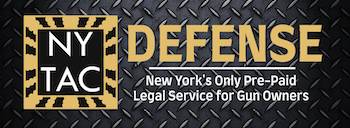Representation.
Huntley Hearings
Huntley Hearings in New York
Huntley Hearings – Hearings that are held to determine whether the Court is going to prohibit the prosecution from using statements made by the accused at the time of his arrest against him at a trial, are one of the most essential tools that an experienced criminal defense attorney has in fighting a criminal case on behalf of a client. As discussed below, issues such as coercion, Miranda rights and right to counsel may be explored at a Huntley Hearing.
Many criminal prosecutions are based, at least in part, on statements that an accused made at or soon after an arrest. In criminal cases, where the prosecution must prove the guilt of the accused beyond a reasonable doubt, statements made by the accused can be powerful evidence. However, many rules exist about how, when and under what circumstances an accused can be questioned. A Huntley hearing allows the accused, through his attorney, to examine the circumstances under which a client made incriminating statements.
In order to start the process of obtaining a Huntley Hearing, first the prosecution must serve notice of intent to use statements made by the defendant against the defendant, at trial. That notice must be served within 15 days from the arraignment. Once notice is received, the Defendant through an attorney usually files a pre-trial motion called an omnibus motion. The omnibus motion in criminal cases deals with a number of different issues but where “statement notice” is received should include a motion to suppress the statements based upon them being made involuntarily. Involuntary for the purposes of this motion could include statements made as a result of being:
- taken involuntarily, within the meaning of CPL §60.45.
- taken in violation of the right of the accused against self-incrimination.
- taken in violation of the defendant’s right to counsel under the New York State and United States Constitutions.
- taken without the effective assistance of counsel.
- taken while the defendant was detained without probable cause to arrest.
- taken without adequately advising the Defendant of his “Miranda” rights prior to questioning.
- taken in the absence of a knowing, voluntary, or intelligent waiver by the Defendant of his rights prior to questioning.
“Involuntarily” pursuant to CPL60.45 includes:
- Physical or mental coercion, or
- A law enforcement officer making a promise which creates a substantial likeliness that the accused may make a false incriminating statement; or
- A law enforcement officer takes the statement in violation of the constitutional rights of the accused. These rights include the rights to Miranda warnings prior to any custodial interrogation.
After the Omnibus motion is decided the Court will often order the Huntley Hearing which will explore the circumstances under which the accused made the statement and schedule the hearing for a future date.
The 1965 case of People v. Huntley which was decided by New York’s highest Court established the requirement in New York that the voluntariness of a statement be determined by a judge prior to a jury hearing the statement. The case also put the burden on the prosecution to establish the voluntariness of a statement beyond a reasonable doubt.
Therefore, the prosecution will generally be required to produce the police officer, detective or other law enforcement agent who either witnessed the defendant’s statement or questions the defendant. The defense lawyer has a right to get all of the previously written statements of the police witness before they testify including all of the relevant police reports. A skilled defense attorney may be able to use those reports to find discrepancies in the witnesses testimony.
After the attorney has thoroughly prepared, the attorney will have an opportunity to cross-examine any of the witnesses that the prosecution calls. After the prosecution has rested and has no further evidence the defendant may testify or any witness that has relevant information about the circumstances of the defendant’s statement may be called by the defense attorney.
After the hearing both sides are given a chance to orally argue their legal arguments to the Court before the Judge decides whether to suppress the statements. In some cases, where the issues are complex, the Court may request, or the attorneys may request to submit written arguments before the judge decides the Huntley hearing.
Win or lose, a Huntley hearing can be a great opportunity to hear the testimony of certain witnesses before the trial and to have an opportunity to cross-examine those witnesses.

















